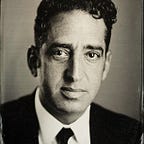Dyslexic Entrepreneurs Are Successful By Any Measure. It’s All in the Way We Think.
It was an unusual day in Isla Vista, Calif. The year was 1970, and a loud, energetic man with wild red hair was hawking pens and pencils on the sidewalk. Behind him, a single copy machine sat under the awning of an old hamburger stand.
The man was there that day because he saw an opportunity. Undergrads at UC-Santa Barbara were lining up in the library to photocopy articles for 10 cents a pop. “I could do better,” he thought. So he took out a $5,000 loan and opened his first copy shop.
That copy shop would become the first Kinko’s, the office-supply giant bought by FedEx for $2.4 billion in 2003. The man on the sidewalk, Paul Orfalea, was about to change the way we think about printing. He was also dyslexic. In other words, a dyslexic founded a business that specialized in duplicating reading material.
Under Orfalea’s leadership, Kinko’s became an international juggernaut with 1,200 locations in 10 countries, more than 20,000 coworkers (Kinko’s never had “employees”) and $2 billion in annual revenue. What was the secret behind this explosive growth? Dyslexia, which Orfalea called “a blessing.”
